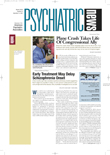Q. It is possible to create a perfect record?
A. There is no such thing as a perfect record. As with most aspects of psychiatric practice, documentation remains a lifelong learning process, a perpetual skill in progress that must continually be reassessed to respond to changing demands and considerations.
A psychiatric record does not have to be “perfect,” but it should be “good enough.” What does that mean? While the specific content of a psychiatric record may vary, the purpose of documentation remains constant. A good record accomplishes several things: it substantiates your clinical judgment and choices, demonstrates the knowledge and skill you exercised during treatment, provides a contemporaneous assessment of the patient’s needs and behaviors, and documents significant events, revisions to the treatment plan, and explanations of your decisions.
Q. If you do not have a perfect record, can you still win a lawsuit?
A. You do not need a “perfect record” to win a lawsuit, but you need to have one that is “good enough.” It is true that documentation plays a vital role in the defense of a malpractice lawsuit; without adequate documentation, it may be very difficult to demonstrate that you provided appropriate care. However, an experienced defense attorney can work well with a cooperative clinician and a “good enough” record. (See above for what constitutes a “good enough” record.) You should not become complacent, however; the reality that perfection can never be obtained should not prevent you from striving to create as complete and supportive a record as possible.
There is one absolute with regard to records and professional liability: Never alter a record. Altering a record destroys your credibility in a lawsuit, could compromise your professional liability insurance coverage, could lead to sanctions from your medical licensing body, and would destroy your professional reputation. In addition, altering a record may be considered a criminal act.
Q. I occasionally help out someone I know (for example, a colleague or a family member) with a prescription or sample of medication. I do not keep records of these types of encounters as I do not have a physician-patient relationship with those involved, nor do I bill for my services. I do not consider such a limited encounter to be “treatment.” Since I don’t see these individuals as patients in my office for a visit, I have no liability, correct?
A. Nothing could be further from the truth. The psychiatrist-patient relationship, like a bundle of sticks, is not a clear-cut phenomenon. Just as sticks may be added to or removed from a bundle without altering the existence of the bundle itself, certain aspects of the psychiatrist-patient relationship may be added to or removed from a given situation without affecting the existence of the relationship.
The largest “stick” in the psychiatrist-patient relationship “bundle” is the act of prescribing/administering medication. That act alone is almost certainly sufficient to establish a psychiatrist-patient relationship, regardless of any other actions taken or not taken. In other words, should you prescribe or administer medication to any individual, you must assume that you are that individual’s physician, with all the attendant obligations and liability.
Two other “sticks” that may establish a psychiatrist-patient relationship, or at least create a question as to whether such a relationship exists, are billing for services rendered and informal counseling. The presence of a bill for services rendered is not determinative of a psychiatrist-patient relationship, as a psychiatrist may provide services pro bono or decide to write off a bill for professional reasons.
Likewise, the trappings of a formal office visit constitute a relatively small “stick” in the psychiatrist-patient relationship “bundle”; therefore, the absence of a formal office meeting likely would have little impact on the existence of a psychiatrist-patient relationship.
Rest assured, however, that it is unlikely that answering general questions in a social setting would be sufficient to create a psychiatrist-patient relationship. However, anything more, such as a general conversation that culminates in a psychiatrist providing specific advice or recommendations, could conceivably expose the psychiatrist to liability.
In social situations, the psychiatrist being questioned should state explicitly that he or she is not acting as the individual’s psychiatrist and cannot make specific diagnoses or treatment recommendations. It is always appropriate to advise the individual to see a psychiatrist for an assessment. In addition, when approached in a social setting, a psychiatrist also must consider the nature of any existing relationship with the individual and the possibility of a conflict. It is unwise, and may be ethically prohibited, to treat a friend, colleague, or family member.
More risk-management information is posted on the Program’s Web site at www.psychprogram.com. ▪
